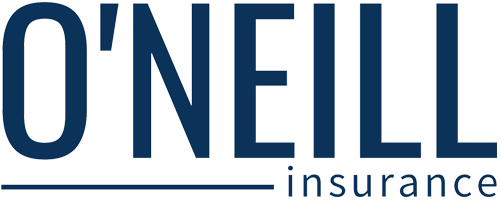Last week I received a call from my friend Mike who operates a food manufacturing company in Northeast Ohio.
Mike called because his refrigeration unit shutdown altogether, causing the food products stored inside the unit to spoil.
The malfunction led Mike down a trail of business issues from removing the spoiled product from the plant, to not having enough product to process that day, to not meeting his customer’s orders.
In other words, it caused quite the disruption to his business.
But the good news is this: MIke had equipment breakdown coverage.
In addition to Mike’s general business insurance policy, he also purchased an equipment breakdown policy to cover him in the event of a loss due to an equipment malfunction.
Unlike Mike, many food companies believe that their standard business insurance policy provides the coverage for equipment breakdown.
And unfortunately, that’s not the case.
In fact, there is a separate, stand-alone insurance policy that food companies need to properly protect and insure the equipment in their facility.
And as food companies continue to adopt new technologically advanced equipment, the need for an equipment breakdown insurance policy becomes more prevalent simply because technology is more sensitive in nature and can easily sustain damage that causes equipment breakdowns.
Why are breakdowns a problem?
Though technology is helping food companies be more efficient and effective, it’s also posing many risks.
Here’s five reasons why equipment breakdowns are a problem:
- Circuitry on high-tech equipment is sensitive. A force as simple as static from bubble wrap can damage certain pieces of equipment.
- Breakdowns that lead to business interruption means lost time and revenue.
- Interconnected but separate technologies can affect one another after a power surge or loss of functionality.
- Obtaining parts to fix complex equipment can be difficult and time consuming.
- Equipment may be located in areas of the facility that are difficult to reach, complicating repairs and concealing problems.
The most common equipment breakdowns occur in electrical systems, refrigeration units, boilers and pressure vessels, and mechanical systems.
Electrical systems make up 10 to 15 percent of a building’s worth, and because they predicate all other business functions, a failure holds the potential for substantial loss for a company.
If a food company relies on refrigeration to maintain products, it runs the risk of spoilage in the event of an equipment breakdown.
Cracking, collapsing, bulging or explosion can occur in boilers and pressure vessels such as heating units, hot water units and cookers, to name a few.
Mechanical systems can break down as a result of vibration, metal fatigue, seizing, misalignment or human error. This includes water pumps, ventilation fans, motors and engines.
What is Equipment Breakdown Insurance?
While it’s important to take proper care of your equipment and schedule routine maintenance, it’s also important to secure Equipment Breakdown insurance in the event of a sudden breakdown.
Typically, an Equipment Breakdown insurance policy will cover:
- Property Damage – The cost to repair or replace damaged equipment due to an accident.
- Off-premises Property Damage – Covers portable equipment damaged away from your covered location.
- Business Income – Covers the loss of income as a result of a covered accident until equipment is repaired or replaced It also allows for additional time after repair or replacement to ensure the business is operating at full capacity.
- Incurred Expenses – Covers any additional expenses used to keep your business going after a covered loss, such as equipment rental fees.
- Business Interruption – Covers business income and extra expenses after a breakdown at a supplier with whom the insured has a contract. If no contract exists, the equipment must be located within one mile of the insured’s location.
- Perishable Goods – Covers food spoilage, manufactured goods or other perishable items after a covered incident.
- Demolition
- Ordinance or Law – Covers costs associated with complying with building codes and laws (other than demolition).
- Hazardous Substances – Pays to clean, repair or replace areas that are contaminated by hazardous substances released in a covered loss.
- Data Restoration – Pays for the restoration of lost or damaged data.
- Newly Acquired Locations – Pays for damage to newly acquired locations.
- Errors and Omissions – Covers locations that are outlined in the policy.
- Brands and Labels – Reimburses for the loss when having to sell a damaged product for less than retail price.
- Waive In-Use Restriction which pays for damaged equipment that was not in operation at the time of a covered accident.
- Computer Equipment and CFC Coverage
Bottom Line
If you own or operate a food company that depends on machinery or equipment to create your product – you need to consider a separate, stand-alone equipment breakdown insurance policy.
Not only will it cover losses incurred due to an equipment failure, but it will also help pay for equipment repair or replacement and help get you back on your feet and running again.
Next Step
Let’s review your insurance program.
My name is Pat O’Neill and I’m a Risk Advisor at The O’Neill Group, a risk management and insurance firm in Northeast Ohio.
I’d be happy to review your insurance policies and ensure you have the right insurance protection in place to keep your operations running seamlessly.
Please call me at (330) 334-1561 or email me at ptoneill@oneillinsurance.com so we can begin reviewing your insurance program.
{{cta(’22f11e76-6328-4c70-b839-5fa1fbfbd94e’)}}
This article was adapted from Zywave. This is not intended to be exhaustive nor should any discussion or opinions be construed as legal advice. Readers should contact legal counsel or an insurance professional for appropriate advice.

